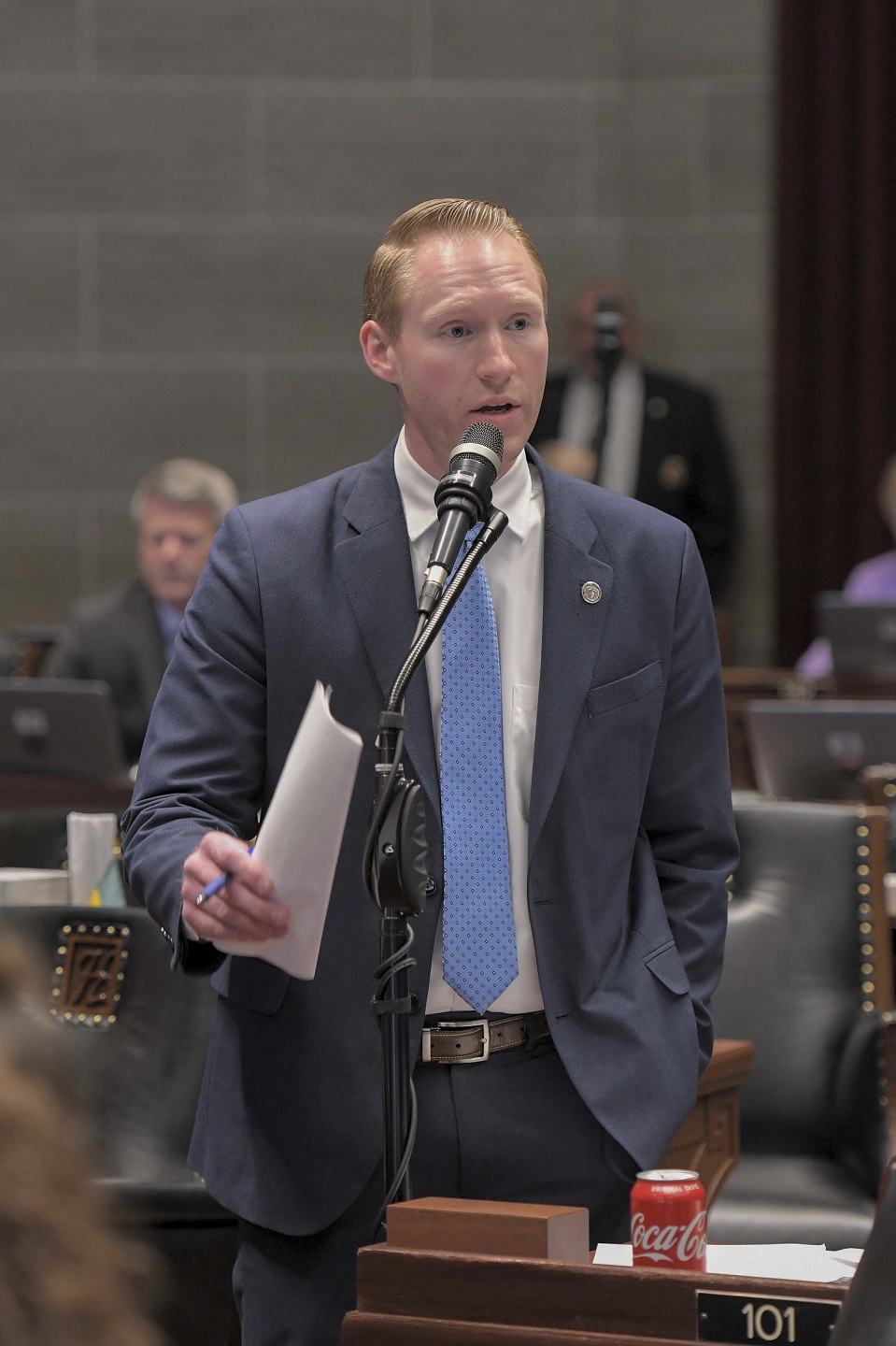Missouri House members are being asked to protect law enforcement officers and other first responders and their families by protecting the personal information of those individuals.
House Bill 59 has been called the “First Responders Protection Act.” It would bar counties from disclosing the address or personal information of law enforcement officers and first responders, upon their request. This would be directed at county clerks, collectors, treasurers, auditors, and recorders of deeds.

It would also make illegal the “doxing” of those individuals; that is, the posting of such information on the internet with the intent of causing harm to them.
The bill’s sponsor, St. Charles Republican Adam Schnelting, said such information has been used to target law enforcement officers and their loved ones.
Dale Roberts with the Columbia Police Officers Association said Columbia officers have been targeted by those they’ve arrested.
“They track our officers down. They called our officers after being arrested and said, ‘I know your daughter, Amanda, goes to Grand Elementary School. I know you live at 309 Pine Street,’ and threaten the officers and their families,” Roberts told the House Committee on Public Safety.
“We go to work every day and we understand the responsibilities, the duties, and the dangers of our job,” said Missouri Lodge of the Fraternal Order of Police president Rick Inglima. “A bill like this would be paramount in helping our officers protect themselves, to keep their information undisclosed – either online or by going through the county records, to keep our officers and their families safe.”
Backers said the legislation could save local law enforcement agencies money that is expended to protect officers who have been targeted due to access to their personal information.
The Recorders Association of Missouri testified against the bill. Speaking for the Association, Jessica Petrie stressed that it supports the intent of the legislation but implementing it wouldn’t be practical.
She said the bill’s prohibition on the release of any data related to an officer’s address could interfere with the sale of property.
Petrie said with the range of capabilities and technologies across Missouri’s 114 counties and the city of St. Louis it is hard to predict what it would take – especially in terms of cost – for all of them to get software or other items necessary to comply with the requirements of HB 59.
The Missouri NAACP also opposes the legislation, saying it would create crimes and penalties redundant to current Missouri law. Sharon Jones with the Association joined the Recorders Association in suggesting that many of the bill’s goals could be met by extending to law enforcement officers the Safe At Home Program, which allows survivors of domestic violence and other crimes hide their address.
The bill’s supporters note that Safe At Home’s protections are not retroactive, so records already available through county offices would stay that way.
The committee has not voted on HB 59.